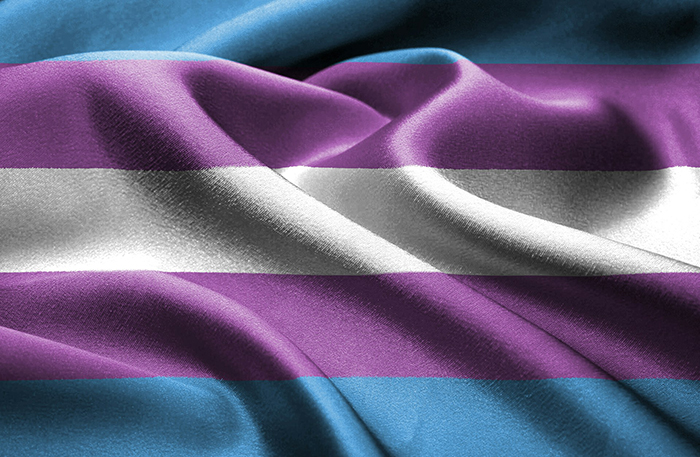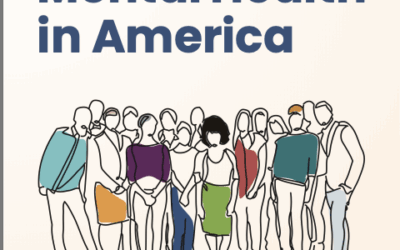By Ethan Wheeler
(They/Them)
Ethan is a 1st year law student at the University of Richmond and a volunteer intern with Mental Health Virginia.
Content Warning: This article contains references to mental health issues concerning the transgender population, including suicide, eating disorders, anxiety, and depression. We want to preface this article by stating that the majority of transgender youth are well adjusted and mentally healthy; however, many face issues that plague their mental health. This article describes and discusses these issues as they relate to Virginia state legislation tailored at transgender youth.
The current session of the Virginia General Assembly saw the introduction of many bills tailored to address issues facing the transgender population. The Youth Health Protection Act (SB1074) sought to make it unlawful for any individual to provide gender transition procedures for minors and prohibits the use of public funds for gender transition procedures. Sage’s Law (HB2182) required elementary and middle school principals to notify parents if a student requests teachers to socially affirm their gender identity. Lastly, HB2405 was a bill that prohibited gender reassignment surgery for individuals younger than 18 years of age and established enforcement procedures for violations. Each of these bills failed.
That being said, the introduction of these bills represents an ongoing national movement to regulate people who identify as transgender. In essence, these bills sought to further alienate a population that is already vulnerable to mental health issues: children. Anti-transgender laws have a significant impact on suicide risk among transgender and nonbinary youth. Mental Health Virginia stands in strict opposition to any effort which has great potential to damage the mental wellbeing of this vulnerable population. We write today to highlight the dangers these bills pose to trans individuals’ mental health.
What Does It Mean to Be Transgender?
The term transgender is a complex word, as it is an umbrella term used to broadly describe a diverse group of individuals who depart significantly from traditional gender identity norms. Because the term is so broad and describes so many different kinds of people, it can (and has) led to confusion about how to refer to these individuals and the issues facing them. So, it helps to start this post off with some basic vocabulary.
Gender identity refers to a person’s basic sense of being a man, a woman, or another gender. Gender is distinct from a person’s sex, which is a biology term used to describe the person’s external genitalia. A person’s sex is given to them by their physician or parents when they are born; referred to as that person’s sex assigned at birth. For most people in America, their gender identity matches exactly their sex assigned at birth, and go through their lives without needing to question or change their gender identity. However, there a population of people who feel a genuine discomfort with their sex assigned at birth – a discomfort that can manifest into physical and mental conditions. You may have heard of a condition called gender dysphoria: a condition describing a strong and persistent sense of unease, or feeling of inappropriateness, with a person’s gender identity. While gender dysphoria can be identified in some transgender people, it does not impact every individual and its symptoms are not always consistent between individuals.
The word transgender includes people who are transexual, those who desire to change their sex characteristics (via hormones or surgery) to align their biological sex with their gender identity. Notably, not every transgender person feels or experiences gender dysphoria to a great extent. Some identify as transgender merely because they question their position in traditional gender norms and are uncomfortable with aligning with those norms. Notably also, not every transgender person is a transexual and not every transgender person desires hormone therapy or surgery. In lieu of medical approaches to align a person’s gender identity with their biological sex, many transgender people choose to manifest their gender identity through Gender Expression. Gender expression denotes the manifestation of characteristics in one’s personality, appearance, and behavior that are culturally defined as ‘masculine’ or ‘feminine’. Gender expression can also include the person’s clothes, their name, or their preferred pronouns in conversation. The degree to which a person conforms their gender expression to these cultural norms can also be drastically different from person to person.
Transgender Community & Mental Health
Lesbian, gay, bisexual, and transgender (LGBT) individuals experience unique mental health disparities. Mental Health America reports that the bisexual and transgender communities have the highest rates of mental health concerns within the LGBT population, and younger members of the LGBT community struggle the most with mental health concerns. According to the Trevor Project, LGBT youth are four times more likely to consider suicide than other youth. Transgender youth specifically experience a unique risk for suicide, depression, mood, anxiety, and eating disorders.
Many risk factors, both general and LGBT-specific, have been implicated in the increased rates of suicidal behavior among LGBT youth. A major transgender-specific factor is their social status as sexual minorities: transgender people, youth especially, face prejudicial hostility from their communities in the form of transphobia. This hostility comes in many forms: family rejection, medical or employment discrimination, bullying at schools, and victimization by politicians and school employees.
As relates to transgender youth, “forced outing” at school is a major problem. Forced outing is when a person of authority over a transgender person (parents, school staff, boss at work, etc.) makes a public announcement about a transgender person’s identity despite the risk that exposing their identity to the public may subject that person to ridicule.
A fear of being exposed to this hostility, which can sometimes be physically violent, can cause transgender people to hide their identities from their support systems, making it that much harder to help them through mental health challenges. Moreover, being minors, transgender youth are far less likely to receive medical or psychological care because they need parental consent for a physician to provide that care. To make matters worse, there simply is not enough attention paid to these vulnerable children to fully understand their struggles . . . which is why we believe legislation that targets transgender children is particularly dangerous and unnecessarily restricts the ability of children to receive the attention they need.
Conversations
Just like any other community of human beings, the transgender community is complex, but this complexity should not be a barrier for effective healthcare. The vast majority of transgender people will gladly talk to you about how they identify if you ask them good faith questions about it, and you may be surprised to hear how different their stories can be. Having open and honest conversations with the very individuals you are curious about is an incredible way to familiarize yourself with the transgender community, and the many societal issues they face.
The Dangers of Anti-Trans Legislation
Today, the majority of legislation about transgender issues is targeted specifically at transgender children. In fact, all three bills relating to the transgender population introduced in the Virginia General Assembly this year target children. Sage’s Law would have required school officials to forcibly “out” transgender children to their parents. Forced outing has shown substantial risk of emotional distress to transgender children whose parents may not be supportive of their gender identity. Additionally, the bills that prohibit surgical and medical solutions to gender dysphoria necessarily restrict the opportunities families have to obtain necessary care for their children. The movement to restrict medical care for transgender children has had broader consequences even outside the General Assembly: Virginia Commonwealth University (VCU) Health and the Children’s Hospital of Richmond at VCU recently banned gender affirming care at their facilities in the wake of the President’s executive order.
A study published in the journal Nature Human Behaviour last year found that anti-transgender laws have a significant and causal impact on suicide risk among transgender and nonbinary youth across the country. Reviewing survey data from 19 states where anti-transgender laws were enacted from 2018-2022, the study concluded that anti-transgender laws increased suicide attempts among transgender and nonbinary youth by 7% to 72%.
Government actions can have substantial detrimental effects on the wellbeing of transgender people, and these actions also speak to the rights and responsibilities of every citizen. Every child and adult in this country has a right not to have intimate facts about their lives disclosed without their consent. Every child and adult in this country should have the freedom to receive necessary medical care, including mental and emotional.
Mental Health Virginia stands in opposition to any attempt by state or federal legislators to create legal barriers for Virginia’s children to receive necessary care and attention, or any effort which is reasonably certain to damage the mental health of our most vulnerable populations.
Resources
In addition to our Peer-Run Warm Line, we provide two other resources for support and information below, without endorsement, which may help you or others in times of crisis. Our website has additional information and resources, as does Mental Health America.
Virginia Peer-Run Warm Line: Our Warm Line is a peer-run service for residents of Virginia. We offer this support line for individuals, family members, and other concerned parties who would like someone to talk to, or who request community mental health resources, or who have specific questions about their recovery journey.
- 866-400-6428
Trans Lifeline: Trans Lifeline is a grassroots hotline and microgrants non-profit organization offering direct emotional and financial support to trans people in crisis for the trans community, by the trans community.
- translifeline.org
- Dial (877) 565-8860
The Trevor Project: The Trevor Project is the world’s largest suicide prevention and mental health organization for lesbian, gay, bisexual, transgender, queer, and questioning (LGBTQ) young people.
- thetrevorproject.org
- Dial 1-866-488-7386
- Text ‘START’ to 678-678




